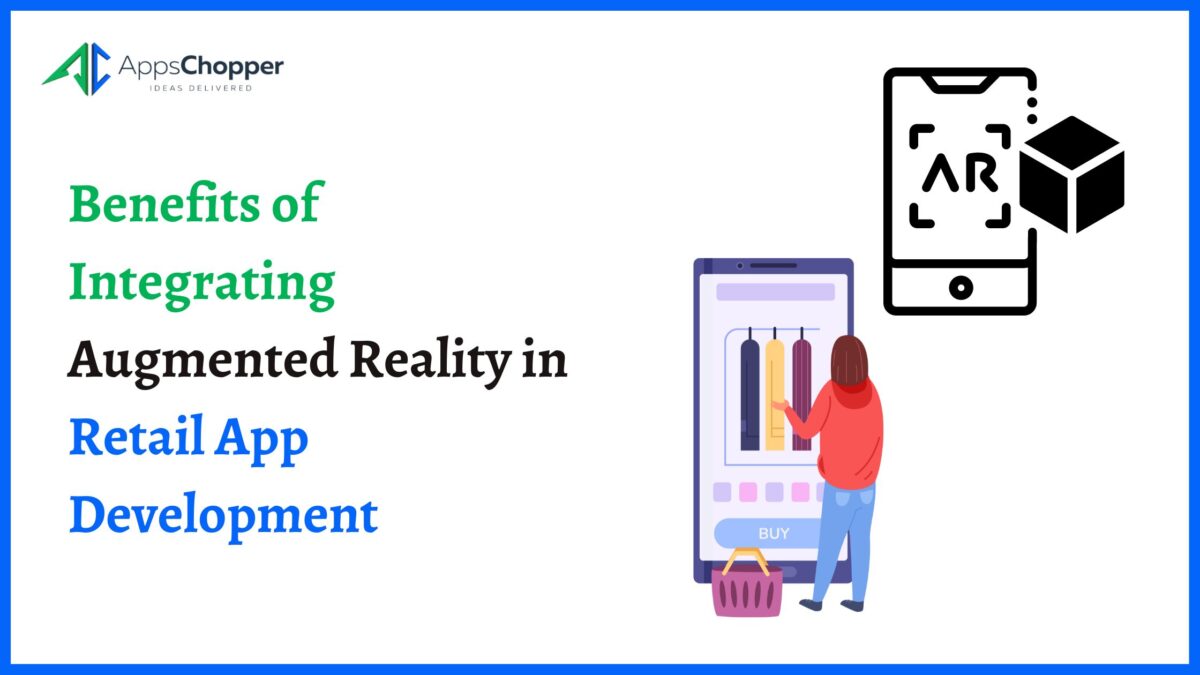Augmented Reality has been in use for decades, but it did not come into mainstream use until 2008 with Wikitude. Since then, we have been experiencing one or another form of it in our mobile apps. What started as an ingenious way to introduce virtual creatures into the real world has now turned into one of retail marketing’s best tools to enhance user experiences.
Despite the growing use of this technology, it remains a largely unexplored area in retail app development. In fact, only one percent have adopted augmented reality in the buying process so far. If you have most of your sales online, you could be missing out on a big opportunity to improve customer engagement.
The Biggest Benefits of Integrating Augmented Reality in Your eCommerce App
There are multiple advantages to incorporating this technology in your retail app, which an experienced AR VR app development company can help you with. However, its ability to bring the shopping experience close to that of a physical visit is the most significant one among them. Others include
Fewer Returns and Refunds
AR helps reduce returns at online stores because it provides a lot of useful information to users, which they generally lack during online shopping. They can see what the item in question would look like before they purchase it. Therefore, they can make a purchase with a better idea of whether it will be right.
Retailers can also use AR to explain how their products can be used. Better product education and clearer how-to instructions would further decrease the likelihood of the product getting returned, which helps the bottom line in turn. The LEGO Technic is a brilliant example that enables users to build their favorite sports cars and make racetracks materialize for them with the help of AR.
Improved Sales and Conversion Rates
Brands that have integrated AR into their apps have boosted conversion rates by impressive percentages. This has been possible because customers feel inclined to spend more time on apps that offer more in their shopping experiences through such technologies. They are also more likely to buy products because they can explore products better using AR.
For instance, apps from Wayfair and IKEA enable users to see how products would look in their rooms with proper instructions. Often, all they have to do is point and move their phone around the area where they intend to place furniture and rugs. The product will materialize in the living space when viewed through the phone, helping users judge whether to buy it based on the images.
More Information on Customer Preferences
This is another way AR is proving useful – by helping retailers find out more about what their customers want. They can track user-object interactions, knowing exactly what is being viewed and for how long.
This information indicates the popularity of each item and helps sellers design their strategy in a better way. Sellers can also give shoppers updated information regarding product pricing and availability similarly.
Fewer Costs
Implementing augmented reality can open the doors to streamlined operations and other advantages from a financial perspective. It can improve cost efficiency by providing a virtual alternative for promotional campaigns and strategies needing product displays. Companies can save money by eliminating costly installations while still engaging customers with an innovative approach.
With augmented reality, retailers will also save valuable store space and be able to use such resources more effectively. For example, furniture stores will not need to place every piece they sell in the limited space they have. Instead, they can use AR to provide a glimpse at different variants and use the space they save for other, more useful purposes without compromising on customer satisfaction.
Conclusion
Augmented Reality is still in the early adoption stages when it comes to retail app development – and it already provides many advantages. Experts recommend it because the use of such technologies shows people that retailers are ready to step up their game.
As a business, your goal should be to help your customers make informed, confident purchasing decisions. Therefore, consider hiring an AR VR app development company experienced in eCommerce-based AR applications to attract and retain users in the best ways possible.


